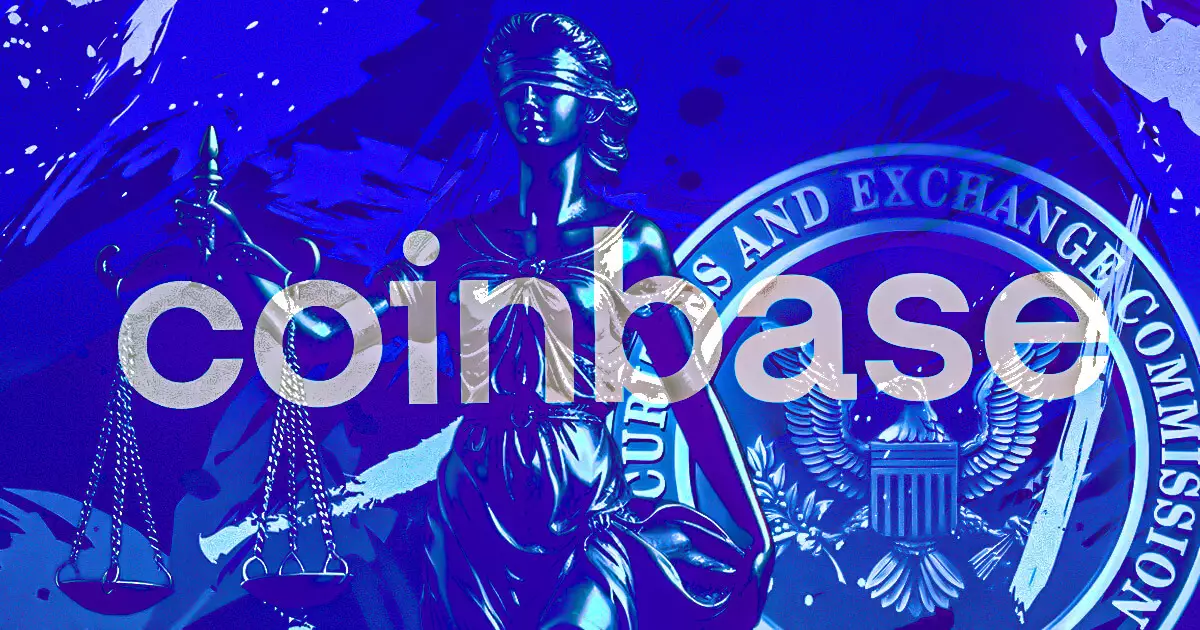In a significant development for the cryptocurrency sector, Coinbase has reached a preliminary agreement with the staff of the Securities and Exchange Commission (SEC) to dismiss an enforcement case against the firm, pending final approval from the broader Commission. This resolution follows a lengthened legal tussle that not only prompted fluctuations in market sentiment but also posed critical questions surrounding regulatory frameworks and asset classifications in the burgeoning ecosystem of digital currencies. The agreement has propelled Bitcoin’s value back above the $99,000 threshold, highlighting the volatility and sensitivity of the market to regulatory news.
Coinbase’s CEO, Brian Armstrong, has been vocal about the importance of this case throughout its duration. The disputes began when the SEC sought to delist certain assets that Coinbase argued were not securities—a move Armstrong asserted was beyond the purview of the agency’s regulatory authority. He has shared that he anticipates the formal dismissal of the case next week, after the settlement clears the Commission’s approval process. “Once approved by the Commission, this would result in a full dismissal, with $0 in fines paid and no operational changes on our part,” he emphasized. This sentiment underscores a broader notion that legal interpretations should not encroach upon established business models without clear justification.
The resolution of the case arrives without any penalties or revisions to Coinbase’s operational practices, which is seen as a pivotal win not only for the company but also for the larger cryptocurrency market. Armstrong’s public remarks reflect an understanding that this confrontation was not merely about protecting a single business but also about safeguarding the foundational legal frameworks intended to govern the entire industry. By disputing the SEC’s delisting directives, Coinbase set a potentially precedent-setting example for other digital asset firms, ensuring the protection of a broader array of crypto assets from stringent and possibly unnecessary regulatory measures.
The decision to pursue a resolution, rather than capitulating, raises pertinent questions about the balance regulators must strike between safeguarding consumers and providing an environment conducive to innovation. Armstrong’s comments have indicated a desire for dialogue and clarity in the regulatory space, allowing businesses to operate without the looming threat of arbitrary enforcement. As he pointed out in a recent tweet, the outcome of this case bolsters the argument for clear delineation of regulatory boundaries, encouraging other firms to consider legal principles as viable shields against what they may perceive as overreach.
Armstrong’s remarks also touched upon the political landscape, attributing some of the regulatory shifts to the Trump administration’s influence, specifically citing the departure of former SEC Chairman Gary Gensler. His comments invoked a complex interplay between political maneuvering and regulatory oversight, suggesting that changes in leadership within governmental institutions can directly impact the operational landscape for cryptocurrency businesses. While the immediate dispute may be resolved, the broader implications prompt necessary discussions around future legislative efforts aimed at clarifying regulatory guidelines. Industry voices frequently stress that such clarity is essential to harmonize the needs of innovation alongside consumer protection.
As stakeholders in the cryptocurrency arena metabolize the results from this legal case, it stands as a potent reminder of the ongoing negotiation between regulatory authorities and crypto businesses. The resolution of this enforcement action may very well serve as a touchstone for similar disputes in the future, focusing on the intricate balance between regulatory compliance and the needs of a rapidly evolving industry. In the face of continual regulatory scrutiny, the ability for firms like Coinbase to withstand these pressures will likely influence how the future of digital asset markets will be shaped, setting pathways for innovation while safeguarding investor interests. As discussions around regulatory reform gain momentum, the landscape for cryptocurrency may emerge more robust, drawing clear lines in what has been an often murky territory.

